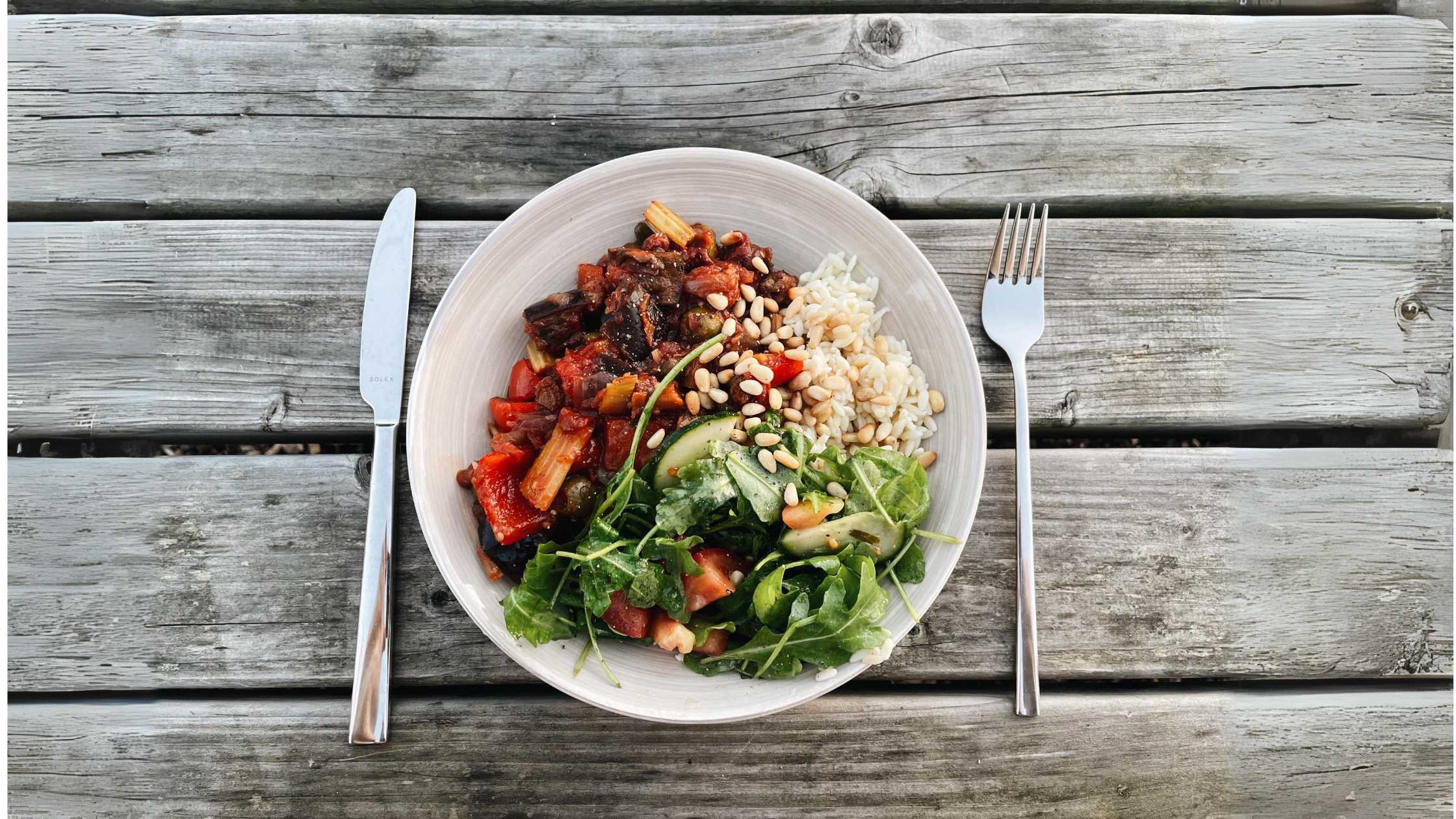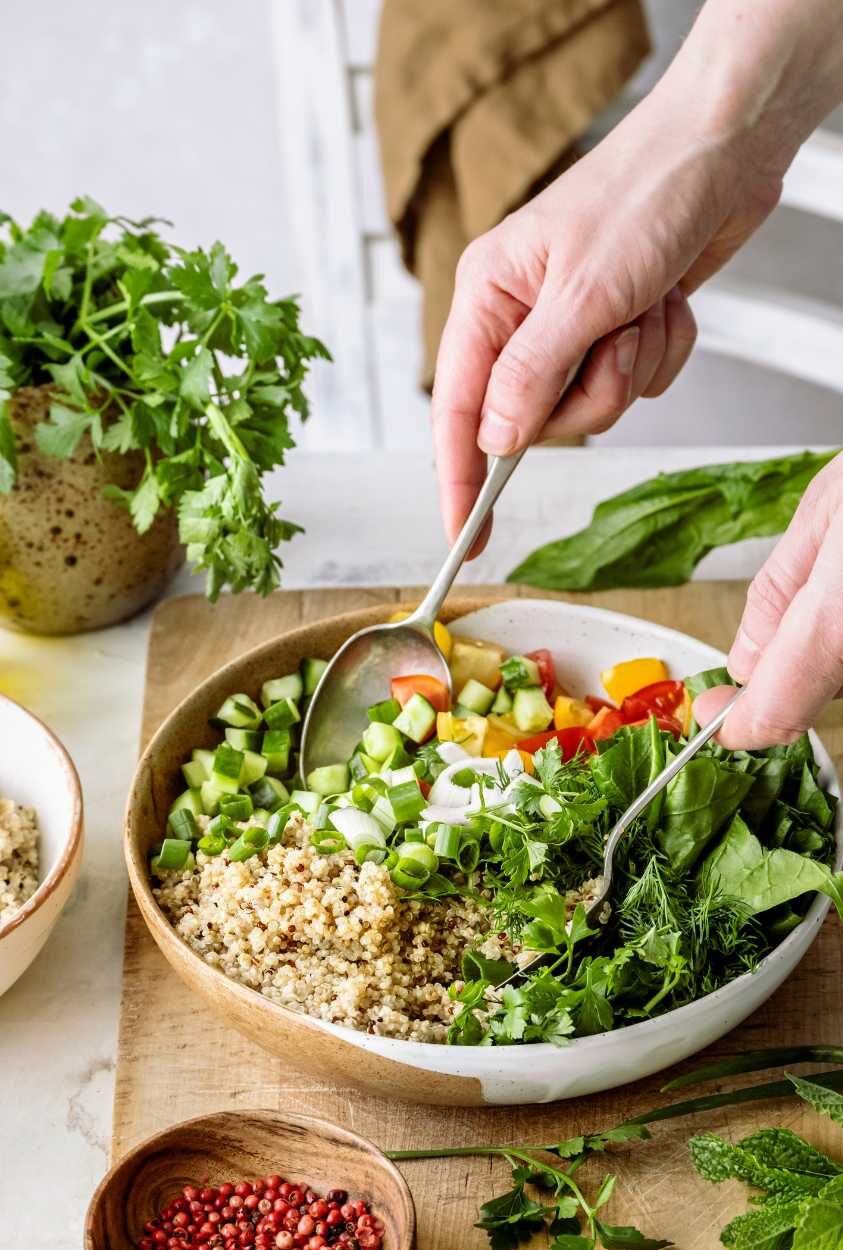Welcome to the world of plant-based eating! Whether you’re a seasoned vegan or just curious about incorporating more plant-based meals into your diet, this guide is here to embark you on an enlightening and healthful journey. The Plant-Based Diet Kickoff Challenge is designed to guide you through the basics, help you overcome common hurdles, and inspire you to make lasting changes towards a healthier lifestyle.
Understanding the Plant-Based Diet
What is a Plant-Based Diet?
A plant-based diet focuses on foods primarily derived from plants. This includes not only fruits and vegetables but also nuts, seeds, oils, whole grains, legumes, and beans. It’s a flexible approach that can accommodate a spectrum of dietary preferences, from strict veganism to more inclusive forms of vegetarianism.
Health Benefits of Plant-Based Eating
Adopting a plant-based diet comes with a myriad of health benefits. It’s linked to lower rates of heart disease, hypertension, type 2 diabetes, and certain types of cancer. Moreover, it’s an excellent way to manage weight and improve overall wellness.
Common Myths and Misconceptions
Many people believe that plant-based diets lack protein or are inherently restrictive. However, with a variety of foods available and a little creativity, a plant-based diet can be nutritionally complete and utterly satisfying.

Preparing for the Challenge
Setting Realistic Goals
Start by defining clear, achievable goals. Whether it’s improving your health, losing weight, or reducing your carbon footprint, your goals should inspire and motivate you.
Essential Pantry Staples for Plant-Based Eating
Stock your pantry with essentials like whole grains, legumes, nuts, seeds, and a variety of spices. These staples will be the building blocks of your nutritious and delicious plant-based meals.
Planning Your Meals
Meal planning is key. It helps in maintaining a balanced diet and avoids the last-minute rush that often leads to less healthy choices.
Tips for Grocery Shopping
Focus on whole, unprocessed foods and read labels carefully. Remember, fresh is best, but frozen vegetables and fruits are great alternatives.

Week-by-Week Challenge Guide
Week 1: Transitioning and Simplifying Your Diet
- Focus: Begin by introducing more plant-based foods into your meals. The key is to start slowly and not feel overwhelmed.
- Action Steps:
- Meatless Mondays: Start with one plant-based day a week, like Meatless Monday.
- Swap Animal Proteins: Replace meat with plant-based proteins like lentils, beans, or tofu in familiar dishes.
- Explore Plant Milks: Try almond, soy, or oat milk in place of cow’s milk.
- Healthy Snacks: Incorporate fruits, nuts, and seeds as snacks.
Week 2: Exploring Plant-Based Recipes
- Focus: Experiment with different plant-based recipes to discover new flavors and foods you enjoy.
- Action Steps:
- Recipe Research: Look up plant-based recipes online or in cookbooks.
- Theme Nights: Have theme nights, like Taco Tuesday with bean tacos or Italian with whole wheat pasta and marinara.
- Cook in Batches: Prepare plant-based meals in batches to save time.
- Family Involvement: Involve family or friends in cooking to make it a fun activity.
Week 3: Integrating Whole Grains and Legumes
- Focus: Start incorporating a variety of whole grains and legumes into your diet.
- Action Steps:
- Whole Grains: Include quinoa, brown rice, or barley in meals.
- Legume Variety: Try different legumes like chickpeas, lentils, and black beans.
- Breakfast Options: Experiment with oatmeal or whole grain toast with avocado.
- Salad Additions: Add legumes to salads for a protein boost.
Week 4: Adding Variety with Fruits and Vegetables
- Focus: Increase the variety and amount of fruits and vegetables in your diet.
- Action Steps:
- Colorful Plates: Aim for colorful plates filled with a variety of vegetables and fruits.
- New Produce: Each week, try a new fruit or vegetable you’ve never had before.
- Smoothies and Juices: Make smoothies or juices for a nutritious snack or breakfast.
- Desserts: Explore fruit-based desserts like baked apples or fruit sorbets.
Overcoming Challenges
- Cravings Management: Find plant-based alternatives to satisfy cravings. For instance, if you crave sweets, try dates or homemade fruit sorbets.
- Social Eating: Research restaurants in advance for plant-based options and suggest dining places that are accommodating to your diet.
- Nutrient Balance: Pay attention to your body’s needs. If necessary, consult a nutritionist to ensure you’re getting a balanced intake of nutrients like protein, iron, calcium, and B12.
Maintaining Momentum Beyond the Challenge
- Routine Review: Reflect on what worked for you during the challenge and what you can realistically maintain long-term.
- Continued Learning: Stay engaged with plant-based eating by following blogs, joining online communities, and experimenting with new recipes.
- Mindful Eating: Pay attention to how your body feels with this new way of eating and adjust as needed for your health and satisfaction.
Support and Community
Embracing a plant-based lifestyle is more than a dietary choice; it’s a journey that weaves through the fabric of your daily life, enriching it with health, mindfulness, and a deeper connection to the world around you. Central to this enriching experience is the power of support and community. In this section, we’ll explore the vital role that connecting with others plays in nurturing and sustaining your plant-based journey, offering a tapestry of shared experiences, wisdom, and encouragement.
. Finding Support Online
- Social Media Groups: Platforms like Facebook, Instagram, and Reddit host numerous plant-based and vegan communities where members share recipes, tips, and experiences.
- Online Forums and Blogs: Websites like VeggieBoards or specific plant-based blogs offer a space to ask questions, find information, and read about others’ experiences.
- Virtual Meetups and Webinars: Look for online events, webinars, or virtual meetups that focus on plant-based living. These events can be educational and provide a sense of community.
2. Engaging with Local Communities
- Local Meetup Groups: Websites like Meetup.com often have local plant-based groups that organize potlucks, dining outs, and educational gatherings.
- Community Events: Participate in local events such as veg fests, cooking classes, or workshops focusing on plant-based living.
- Volunteering: Get involved in local community gardens, animal sanctuaries, or environmental groups that align with the ethics of plant-based living.
3. Building a Support System
- Family and Friends: Educate and involve your family and friends about your lifestyle. Share meals and recipes with them to create a supportive home environment.
- Mentorship: Seek a mentor who has been following a plant-based lifestyle for a longer time. They can provide guidance, motivation, and support.
4. Sharing Your Journey
- Document Your Journey: Start a blog, YouTube channel, or an Instagram account to document and share your journey. This not only creates a sense of accountability but also connects you with like-minded individuals.
- Storytelling: Share your challenges, successes, and learnings. Storytelling can be a powerful tool to connect with others and inspire.
5. Engaging in Advocacy and Outreach
- Community Education: Engage in educational efforts by hosting or participating in workshops and talks about plant-based nutrition and lifestyle.
- Collaborations: Collaborate with local businesses or restaurants to promote plant-based options. This helps in creating a more inclusive environment in your community.
6. Participating in Support Groups
- Online Support Groups: Join online support groups for specific needs like plant-based families, athletes, or those with health conditions.
- Local Support Networks: Look for local support networks, which can be particularly helpful for those transitioning to a plant-based diet.
7. Continuous Learning and Sharing
- Attend Workshops and Seminars: Regularly attend workshops, seminars, or webinars to stay informed about the latest in plant-based nutrition and lifestyle.
- Share Knowledge: As you learn, share your knowledge with others in your community. Teaching can be a powerful way to reinforce your own understanding.
8. Celebrating Milestones Together
- Group Celebrations: Celebrate milestones like anniversaries of adopting a plant-based lifestyle with your community. It’s a great way to acknowledge your journey and keep motivated.
9. Networking and Professional Associations
- Join Professional Associations: For those interested in the health aspect, joining professional associations related to plant-based nutrition can be beneficial.
- Networking Events: Attend industry-specific networking events to connect with professionals in the plant-based and wellness sectors.
10. Cultural and Diverse Communities
- Diverse Communities: Engage with diverse communities to understand different cultural approaches to plant-based eating. This can broaden your culinary horizons and understanding of global plant-based practices.
Maintaining Your Plant-Based Lifestyle
Maintaining a plant-based lifestyle involves more than just following a diet; it’s about adopting a sustainable and fulfilling way of living that aligns with your health goals and ethical values. Here are some key aspects to consider:
1. Diversify Your Diet
- Variety: Regularly include a variety of fruits, vegetables, whole grains, nuts, and seeds in your diet. This ensures you’re getting a wide range of nutrients.
- Experiment with Recipes: Continuously explore new plant-based recipes and cooking methods to keep your meals interesting and enjoyable.
2. Plan Your Meals
- Meal Prep: Dedicate time each week to plan and prepare your meals. This helps in making healthier choices and saves time during busy days.
- Balanced Meals: Ensure each meal has a good balance of macronutrients – carbohydrates, proteins, and fats, as well as essential vitamins and minerals.
3. Stay Informed
- Nutritional Knowledge: Stay updated on plant-based nutrition to ensure you’re meeting your dietary needs, especially for nutrients that can be more challenging to obtain, like Vitamin B12, iron, omega-3 fatty acids, and calcium.
- Continuous Learning: Read books, watch documentaries, and follow plant-based health professionals and communities for inspiration and education.
4. Mindful Eating
- Listen to Your Body: Pay attention to how different foods make you feel. Adjust your diet according to your body’s signals and nutritional needs.
- Enjoy Your Food: Take time to savor and enjoy your meals. Mindful eating enhances the eating experience and can improve your relationship with food.
5. Social and Community Support
- Find a Community: Connect with other plant-based eaters through local groups, online forums, or social media. Sharing experiences and tips can be very supportive.
- Navigating Social Situations: Have a plan for social gatherings and dining out, such as suggesting plant-based friendly restaurants or bringing your own dish to share.
6. Adapt and Personalize
- Personalization: Tailor your plant-based diet to fit your individual lifestyle, health needs, and preferences. There’s no one-size-fits-all approach.
- Be Flexible: It’s okay to have meals that aren’t 100% plant-based occasionally, especially when you’re in social situations or traveling. Flexibility can make the lifestyle more sustainable.
7. Health Monitoring
- Regular Check-ups: Regular health check-ups and blood tests can help monitor how well your diet is meeting your nutritional needs.
- Adjust as Needed: Based on your health check-ups, you might need to adjust your diet or take supplements.
8. Sustainability and Ethics
- Ethical Choices: Consider the ethical and environmental impact of your food choices. Opt for locally sourced, organic, and seasonal produce when possible.
- Sustainable Practices: Embrace other aspects of sustainability like reducing food waste and using eco-friendly products.
9. Motivation and Commitment
- Remember Your ‘Why’: Regularly remind yourself of the reasons you chose a plant-based lifestyle, whether for health, ethical, or environmental reasons.
- Set Realistic Goals: Set achievable health and lifestyle goals to keep you motivated and on track.
10. Dealing with Challenges
- Educate Yourself on Common Challenges: Understand the common challenges of a plant-based lifestyle and educate yourself on how to overcome them.
- Seek Professional Advice: Don’t hesitate to consult with a dietitian or a healthcare provider for personalized advice, especially if you encounter any health issues.
Success Stories and Inspiration
Real-Life Transformations
Read and share success stories. These narratives can be incredibly inspiring and reassuring.
Testimonials from Challenge Participants
Connect with others who have completed the challenge. Learn from their experiences and take note of their advice.
Conclusion
The Plant-Based Diet Kickoff Challenge is more than just a diet change; it’s a lifestyle transformation. As we conclude, remember that this journey is unique for everyone. Embrace the changes at your own pace and enjoy the numerous benefits that come with plant-based eating.
Resources and Further Reading
Recommended Books, Blogs, and Websites
There are countless resources available for those interested in plant-based diets. Books like “How Not to Die” by Dr. Michael Greger, and websites such as NutritionFacts.org, offer valuable insights.
Helpful Apps and Tools for Plant-Based Eating
Apps like HappyCow can help you locate vegan and vegetarian restaurants, while others offer recipe ideas and nutritional tracking.
Embark on this journey with an open mind and a willing palate. The world of plant-based eating is diverse, delicious, and deeply rewarding. Happy eating!


